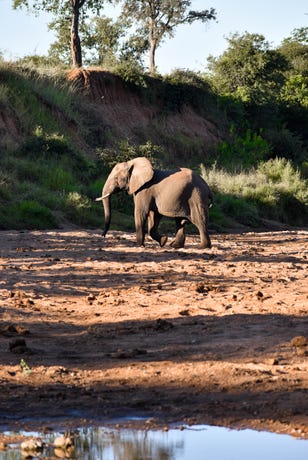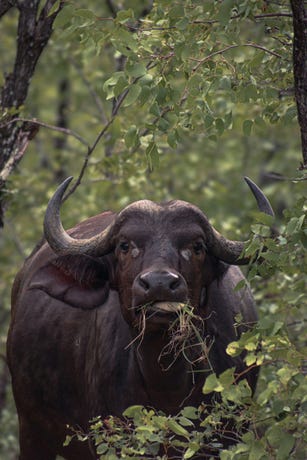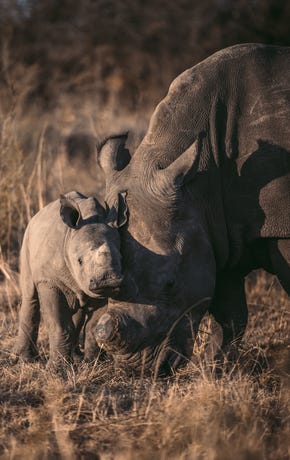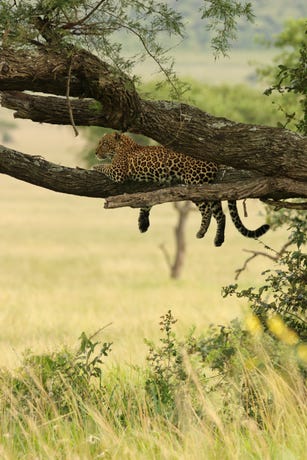Scenset's Guide to South Africa
Scenset's tips for exploring South Africa!
We've put together this handy guide on what to watch or read before you go to get you excited for your trip, to tips on the ground such as tipping guidelines and what to pack; and ways to bring that South African vibe back home with you so your trip never has to end!

Some of our recommended movies to watch before you go to South Africa are:
- Tsotsi is set in the neighborhoods of Johannesburg and accompanied by the vibrant beats of South African music, Tsotsi paints an exceptional picture of the decisions we face in life and the gratifying personal victory that arises when love is chosen over anger. This film won the Oscar for Best Foreign Language Film - trailer here.
- Sarafina is a must for any list of the best South African films. It depicts Black students resisting the government's mandate to use Afrikaans in schools. Teacher Mary Masombuka (Whoopi Goldberg) supports Sarafina (Leleti Khumalo) in leading the opposition - trailer here.
- District 9 explores social segregation, humanity, and xenophobia; earning 52 nominations, 4 Oscar nods, and 14 wins. Set in 1982 Johannesburg, the government confines sick, insect-like aliens from a water vessel to District 9, an internment camp - trailer here.
- Angeliena, released in 2021, is a South African comedy-drama that depicts a parking attendant pursuing her dreams after undergoing life-changing revelations - trailer here.
- The Gods Must Be Crazy follows Xi and the Bushmen who live a steady life until an unexpected "gift", (an empty Coke(r) bottle), disrupts their world. The movie stands out as a unique and thought-provoking comedy, offering a different perspective on our eccentricities - trailer here.

The little ones will love these:
- Khumba, one of the best South African animated films, draws its name from the Zulu term for skin, promoting a message of self-love. The plot centres around Kevin, a half-striped Zebra, wrongly accused by his superstitious herd for causing a prolonged drought. Kevin embarks on a quest to discover the legendary water hole in the Karoo Desert, where other zebras obtain their distinct markings - trailer here.
- Seal Team follows Quinn, a carefree seal enjoying sunny days and facing Great White Sharks off the coast of Cape Town. When Quinn decides it's time for the food chain to reverse roles, he forms a daring team of like-minded seals to teach the sharks a lesson - trailer here.

A few of our favorite books to read before (or while in) South Africa are:
- Burger's Daughter revolves around Rosa Burger, a 26-year-old South African woman who grapples with finding her purpose in the world following the loss of both her parents. Written by Nadine Gordimer, who won South Africa’s first Nobel Prize for Literature in 1991 - click here for more information.
- A Long Walk to Freedom by Nelson Mandela is a captivating autobiography that delves into his early life, education, and 27-year prison term; where he secretly wrote parts of the book. Detailing his unwavering quest for freedom in South Africa, the book won the Sunday Times Alan Paton Award in 1995 and has been translated into numerous languages - click here for more information.
- Cry, The Beloved Country one of South Africa’s most critically acclaimed novels, is a poignant tale set against the backdrop of racial injustice before the legalization of apartheid in South Africa. Centred on Zulu pastor Stephen Kumalo and his son Absalom, the bestseller explores themes of loss, hope, and faith - click here for more information.
- Coconut by Kopano Matlwa is a brutally honest literary representation of the black experience in post-apartheid South Africa. While a work of fiction, many black South African women express a strong connection to the novel, resonating with its portrayal of the challenges women of color face growing up in South Africa - click here for more information.
- Born a Crime: Stories From a South African Childhood, by Trevor Noah, recounts the comedian's challenging upbringing in apartheid South Africa, where the forbidden union of his black Xhosa mother and white Swiss father shaped his early years - click here for more information.

We have designed some great playlists for you to enjoy during your trip through South Africa full of local talent to discover!
- South Africa - from the streets of Johannesburg to the beaches of Cape Town, these artists are showcasing the style and production of South African music!
- Sounds of Africa is the soundtrack to your African adventure; full of local artists and beats to discover from across the continent!
- The Open Road is perfect for listening to while traveling between destinations, so sit back, relax and enjoy the views!
- Summer Chill is great for spending time relaxing on the beach or in the bush.
- Surf's Up - this is your soundtrack for hitting the surf!

For safari:
- We recommend layering your clothing.
- Game drives take place early morning and evenings and it is quite cold before the sun rises and after it sets. The daytime temperatures can be warm and sunny and it can get quite hot.
- Light, natural fabrics like cotton and linen are recommended for during the day (shorts, t-shirts, summer dresses around the lodge) and in the evenings, layer up with long trousers, long sleeve vests and a warm jacket.
- Formal wear is not required at any of our lodges – you are free to come straight from the game drive into dinner.
General
- Long trousers or denim jeans.
- Long sleeve vests/t-shirts.
- Shorts, t-shirts, summer dresses.
- A warm jacket, fleece or windbreaker.
- Woolen hat/beanie, gloves and scarf for morning drives.
- A good pair of walking shoes.
- Longer socks to wear with walking shoes – especially if you plan on going on Bush Walks.
- Sandals or flip-flops for during the day at the lodge and some closed shoes or sneakers for evenings.
- Wide-brimmed sun hat, sunglasses and a good sunscreen.
- Bathing suit.
- Camera, video camera, binoculars, spare memory cards and charging equipment. Some lodges do provide spare sets of binoculars on game vehicles and at the lodges if you don’t have your own.
- A small flashlight or headlamp for walking around camp.
- Anti-allergen medication such as Zyrtec.
- Insect Repellent with DEET.
- Lotions, tissues, moisturizers, chapstick.
- Personal cosmetics, toiletries.
- Money belt or fanny pack for cash and travel documents.
- Power bank for charging of phone on safari drives.
- A good book to read during downtime at the safari lodge.
- Passport.
- Cash for personal expenses.

Check-in is 1 1⁄2 hours prior to departure for domestic flights and 3 hours prior to departure for international flights.
Some scheduled regional and inter-lodge flights may involve multiple stops before reaching the final destination. Many flights are operated as air shuttle transfers and therefore departure times may vary by up to one hour.
When traveling on normal scheduled international or domestic flights, the luggage limit is usually 20kgs (approx. 44 lbs.) per person.

South Africa is a mix of cultures and languages, with 11 different languages officially being spoke throughout South Africa, including English and Afrikaans (a derivation of Dutch) as well as several African languages like Zulu and Xhosa.
Important: due to the history of South Africa, it may be disrespectful to speak Afrikaans in certain neighborhoods or areas, so always check with your guide or driver first.
Afrikaans
- Hello: Hallo (hal-low)
- Goodbye: Totsiens (tot-seens)
- Please: Asseblief (ah-she-bleef)
- Thank you: Dankie (dahn-key)
- You're welcome: Plesier (pleh-seer)
- My name is...: My naam is… (may naam is)
- What is your name?: Wat is jou naam? (vat iss yo naam?)
- Pleased to meet you: Aangename kennis (aan-he-naam-eh ken-nes)
- Excuse me: Verskoon my (fer-skoen may)
- Yes: Ja (yah)
- No: Nee (knee-ah)
- Good/Nice: Lekker (lah-kah)
- Do you speak English?: Praat jy Engels? (praat yay enn-els)
- How much does it cost?: Hoeveel kos dit? (who-feel kos dit?)
- Where is the toilet?: Waar is die toilet? (vaar iss dee toy-let)
- The menu, please: Die spyskaart asseblief (dee shpays-kart ah-she-bleef)
- The bill, please: Die rekening asseblief (dee reh-ken-ning ah-seh-bleef)

Electricity is generally 220/230 volts, 15 amps, and is supplied through either 15-amp 3-prong or 5-amp 2-prong plugs, in both cases with round pins.
We recommend bringing a travel adapter that has multiple specifications so you're always prepared.
Hotels may have adapters you can use, but they may not always be available or working, so it's best to have your own.

Here are some tips on health, safety and general rules to be aware of:
Security
- Dial 10111 and ask for the police if you have an emergency.
- You can also dial 112 on your mobile for any emergency services and you will be transferred.
- The risk of crime to visitors in the main tourist cities is generally low. There is usually additional security personnel in the main tourist areas who can assist tourists.
- It's important to remember that, like all major global cities, pickpockets and theft can operate in highly populated areas; especially areas frequented by tourists.
- It is highly recommended not to bring or wear valuable or sentimental jewellery, watches or items with you that you do not wish to lose or have stolen.
- Avoid walking around by yourself after dark, and stay in well-lit areas where there a lot of people around.
- Avoid townships without being accompanied by a guide.
- While most visitors do not have any issues whatsoever when visiting, it's always good to be aware of your surroundings and your personal items.
Protests
- Avoid areas where protests, demonstrations, or marches are taking place, especially in city centres and townships. Do not cross protester roadblocks.
Health
- Dial 112 (from a mobile) or 10177 and ask for an ambulance.
- Medical facilities in cities and larger towns are world-class, but you will find that in rural areas the clinics and hospitals deal with primary health needs, and therefore do not offer the range of medical care that the large metropolitan hospitals do.
- Medicine may be purchased at pharmacies - don’t forget to bring an original prescription if you need to obtain prescription drugs whilst travelling and don’t pack prescription medicines in checked in baggage.
- If you are under special medical treatment, you are advised to take enough medicines with you to cover your trip and any delays, as there is a high possibility that you may not find the same medicine in France.
- Ensure you have travel insurance with you that covers medical if your supplier does not already cover you.
- While most of South Africa is malaria-free, this mosquito-borne disease is prevalent throughout the year in Kruger National Park and the low-lying areas of KwaZulu-Natal. Consult your healthcare professional about a suitable prophylactic.
- The beaches and water have strong sea currents. Be careful and check local conditions. On busier tourist beaches, only swim between the red and yellow flags, read the warning signs and follow instructions from lifeguards.
Powercuts
- There are ongoing nationwide power shortages with rolling power cuts. Scheduled regular power outages (‘loadshedding’) have become longer and can occur daily.
- To keep up with the latest loadshedding schedule when travelling, download the free ‘EskomSePush’ app via the Google Play or Apple app stores. By inputting your area on the app (you can locate your area by allowing the location permissions on your device), the app will advise what the current daily load-shedding schedule is for your particular area.
- For more information, click here.
Local laws and customs
- Always carry a copy of your passport photo page and the page with your visitor's permit or residence permit for South Africa. South African officials may request identification and proof of residence at any time. Keep your passport itself in a hotel safe or another secure location and do not carry it with you, unless needed for official identification.
- It is illegal to buy or sell cannabis or to use it in public. Using cannabis for consumption in private is legal. Public and private use of cannabidiol oils (CBD oils) is also legal. The use, sale and purchase of all other drugs is illegal.
- Homosexuality is legal, and it is illegal to discriminate based on sexual orientation.
- It is strictly prohibited to disturb, harass or harm any wild animals in national parks. This includes disturbing sleeping wildlife, including birds.
- Many municipalities, such as the City of Cape Town, enforce by-laws that prohibit the consumption of alcohol in public spaces.
Natural Disasters
- Heavy rainfall often leads to widespread flooding. Flooding can take place anywhere and at any time of year. Always check local weather reports and local news for any hazards before you start your journey. The South African Weather Service provides up-to-date information on weather alerts and conditions.
- Wildfires can occur in both rural and urban areas during periods of hot and dry weather. If you encounter a wild fire, move to a safe location away from vegetation and smoke. If you are inside a building or a car, close all vents and windows, if it is safe to remain in place.

Tips are always appreciated and enthusiastically received. Tipping is only recommended if you are satisfied with the service you have received and is entirely at your discretion.
Tipping guidelines are as follows:
General
- Airport or hotel porters: R20 ($2) per bag
- Transfers: tips not expected
- Day tours: R200 ($15) per person for a full day tour
- Restaurants: 10% - 15% of the total value of the bill depending on the service
- Car guards and filling stations in South Africa: R5 tip for fuelling attendant or R5 ‘donation’ for car guard (in urban areas you’ll find formal and informal characters offering to watch your vehicle)
On Safari
- For rangers: between R200 ($15) - R300 ($20) per person per day
- Trackers: between R150 ($10) - R200 ($15) per person per day.
- General lodge staff: gratuity is between R150 ($10) - R200 ($20) per day.
All tips can be paid over by credit card as opposed to cash.

The monetary unit in South Africa is the Rand (ZAR) that is divided into 100 cents.
- Coins come in denominations of 5c, 10c, 20c, 50c, R1, R2 and R5, and notes in denominations of R10, R20, R50, R100 and R200.
- You can pay road tolls by MasterCard or Visa.
- Card payments are accepted by most vendors in large towns and cities (a Revolut card is an amazing way to keep local currency on you with a card payment to avoid transaction fees), but it's important to always have some cash money on you when traveling to rural areas as you might encounter a few studios or small shops in less-touristic areas that don't accept card.
- Cash is usually withdrawn from automatic teller machines at bank branches. In addition, in France it is easy to find ATMs to withdraw cash in shopping centres and shopping areas, large urban centres and historic centres in small towns.

South Africa is a foodie destination in its own right. To help you make the most of your food experiences while here, here are a few of our favorite dishes to try while you're there:
- Bobotie, often hailed as South Africa's national dish, represents Cape Malay cuisine. This hearty meal incorporates minced meat, usually lamb or beef, along with curry spices, onions, milk-soaked bread, and dried fruit such as raisins or sultanas; commonly served with yellow rice.
- Per peri chicken is a very popular South Africa dish that has made a name for itself overseas thanks to the large chain Nando's; particularly popular in the United Kingdom.
- Knysna oysters from the Garden Route coast are incredibly fresh and worth trying!
- Biltong, similar to beef jerky, are air-dried strips of meat that are cured. Usually eaten on its own as a snack, it makes a great road trip food! As biltong isn't technically cooked, it's not permitted to bring it back home with you.
- Boerewors, also known as farmers' sausage, is very popular throughout the country. The sausage must contain 90% meat to count as boerewors, with the remaining % used for spices. It's very common at a Braii.
- Koeksisters are braided fried dough smothered in honey syrup; akin to a mix of donuts and baklava.
- Melktert is a cinnamon-topped custard pie with its origins in Cape Dutch cuisine.
- Bunny Chow hails from the large Indian communities in Durban and is essentially flavorful curry placed within a hollowed loaf of bread.
- The Chocolate Block is a wine from South Africa (a country that produces some of the best wine in the world), that incorporates cocoa/mocha into the blend for a rich, smoky must-try!
- Steak in South Africa is exceptional and very well-priced for what you would pay for overseas. You really can't go wrong with South African meat.

Braai is one of the most popular ways to eat meat in South African and is a much-loved pastime similar to the Australian Barbeque.
The proper way is to cook over an open flame (no gas) and holds a strong cultural significance to South African people as a way of bringing people together from across diverse communities for social events and celebrations. The spread typically features a variety of grilled meat mains, accompanied by delicious side dishes showcasing South African spices.
Paired with beer and wine, it's a great way to enjoy time with friends, celebrate and eat good food.

Originally coined during the hunting era of the 19th and early 20th centuries by the so-called 'great white hunters,' this term referred to the most challenging and dangerous animals to hunt on foot.
Today, the term endures as a symbolic designation for these majestic creatures, though the focus has shifted from shooting with guns to capturing them through the lens of a camera.
The Big Five are:
- The Lion: They are the most sought-after due to being synonymous with an African safari. Charismatic, powerful and beautiful, everybody wants to see the appropriately named 'King of the Beasts'.
- The Elephant: African elephants are the world's largest and heaviest land animal.
- The Buffalo: They are possibly the most dangerous of the Big Five, especially if you are on foot, due to their temperament.
- The Rhino: The second-largest land mammal, the white rhino’s name has nothing to do with its colour. It was the early Dutch settlers who referred to the animal’s broad lips as ‘wyd’ (wide), misinterpreted later as ‘white’. Unfortunately, these (and especially the Black Rhino) are highly endangered species.
- The Leopard: One of the most elegant, elusive and beautiful creatures to grace the savannah. You are more likely to spot these during night drives as they are nocturnal creatures.
Click here for more information on the Big Five!





The adventure doesn't have to end when you come home!
You still have access to the movie and reading list, as well as the Spotify playlist to bring a little bit of South Africa home with you.
Siba is a South African chef, television presenter, and cookbook author. She is known for her show, Siba's Table, which airs on Food Network.
Here, Siba shares her South African Chakalaka recipe:
